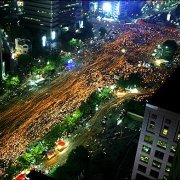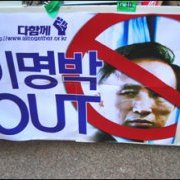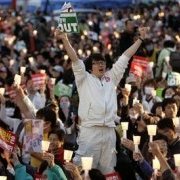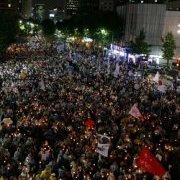16-Jun-2008
Financial Express
The Daiichi Sankyo-Ranbaxy Laboratories deal has come as a shot in the arm for India’s Comprehensive Economic Co-operation Agreement (CECA) negotiations with Japan. Indian pharma companies have been unable to break into Japan, the world’s second largest drug market, due to the country’s stringent sanitary and phytosanitary standards, technical barriers to trade (TBT) and environmental norms.
11-Jun-2008
The Hankyoreh
Up to a million Korean citizens from all walks of life participated in candlelight protests held on the 21st anniversary of a pro-democracy uprising, with a total of 118 candlelight protests held across the country on June 10.













